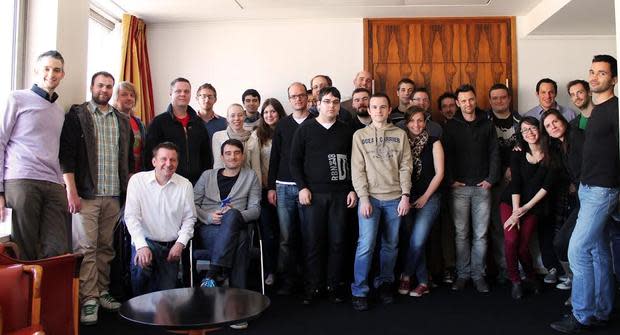Talkwalker: Delivering extensive social media analytics to Europe and beyond

Image: Talkwalker
When the team behind social media monitoring and analytics tool Talkwalker finally received notice that they'd been approved as a Twitter certified product, they threw a party.
"We remember the email coming in," said CEO Robert Glaesener, "we were actually very happy about that because this was kind of recognition of your really hard work that you did for three years. Having such kind of selection was key, and third party endorsement and recognition of the work we have done."
It was a big moment for the Luxembourg-based company, they now one of four or five companies in all of Europe to earn the certification. In a relatively short time, they created and launched a thorough platform for all variety of analytics and insight online. Its search index covers 150 million sources, according to their Facebook about page.
Talkwalker was originally founded by two engineers who were in their 20s, said Glaesener, who was employee no. 3. One of those founders, Thibaut Britz, had previously created a search engine at the ripe old age of 17. He started Talkwalker about a year after graduating from university, having worked on an algorithm that could crawl the web.
The company was officially founded in 2009. Though, it was two more years before they launched the the actual product, said Talkwalker's community manager Julie Hong.
In its current form, Talkwalker offers functionalities including listening, sentiment analysis, analytics and insight, and alerts, to name a few, aimed at putting together a comprehensive picture of not only a brand but its competitors. Hong said clients most frequently use them for monitoring, benchmarking, and reputation management. The reports users receive are customizable down to the types of graphs included, (in case you just really hate bar graphs, you don't have to see them).
Hong also said that Talkwalker offers about 25 different media types -- what they call social networks like Facebook and Twitter, or blogs. Not only do they hit the obvious ones, but they have also worked in platforms like SoundCloud, Mixcloud, and Vimeo.
In terms of adding new media types, what they add is in part driven by what their clients request. So, Hong said, if a client needs Flickr, they will work on integrating it, and then roll it out in a release that's available to all their clients.
"That's how the tool evolves," Hong said.
She also said that their algorithm makes it possible for them to crawl just about any website. For example, Talkwalker can pull in information from customer reviews on Amazon, despite the complex structure of the website.
One feature in particular that's earned some buzz is the Talkwalker Alerts. Talkwalker Alerts are part of the platform, but were also spun off as a free service. Hong described them as having a high level of customization -- users can type in not just keywords but also boolean operators and decide how often they want to receive alerts, in which language, and even what would trigger an alert, whether it's whenever there's a new result, or if volume increases to a certain point. Reviews have namechecked it as a solid alternative to Google Alerts.
Along the way, Talkwalker has gone from having a few employees -- just 11 when Hong started -- to having just reached 50.
"You still want to be the nimble and to have the creativity and the feeling of a smaller company," Glaesner said. "While on the other hand, also being dependendable and being reliable for your clients."
They released a second version in June, and Hong said they are mindful to keep a certain of simplicity to the platform, while still adding on it.

